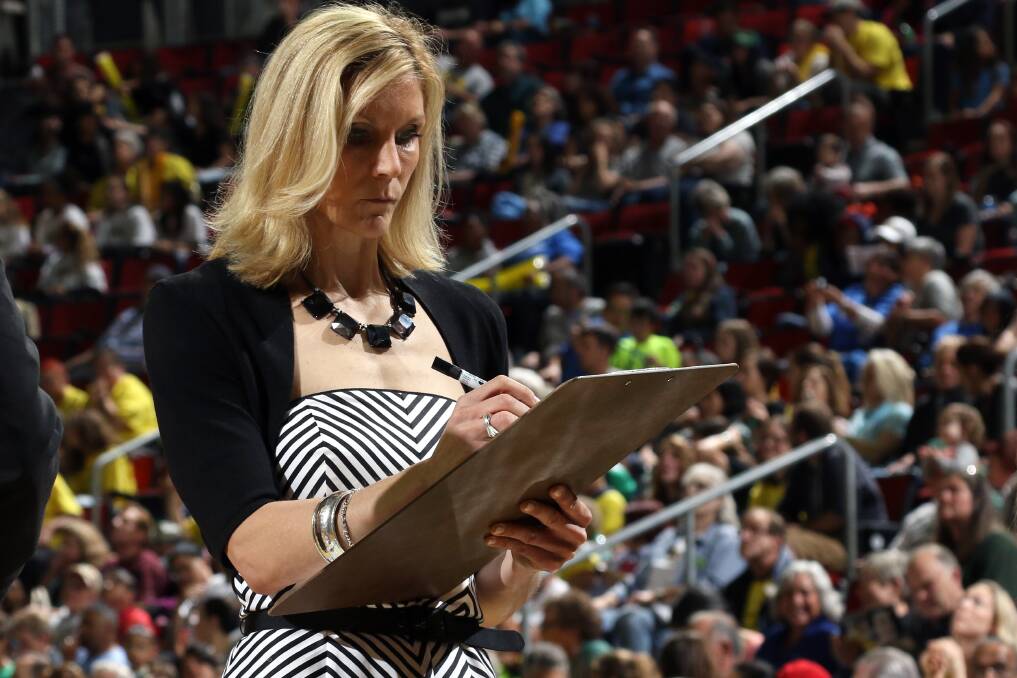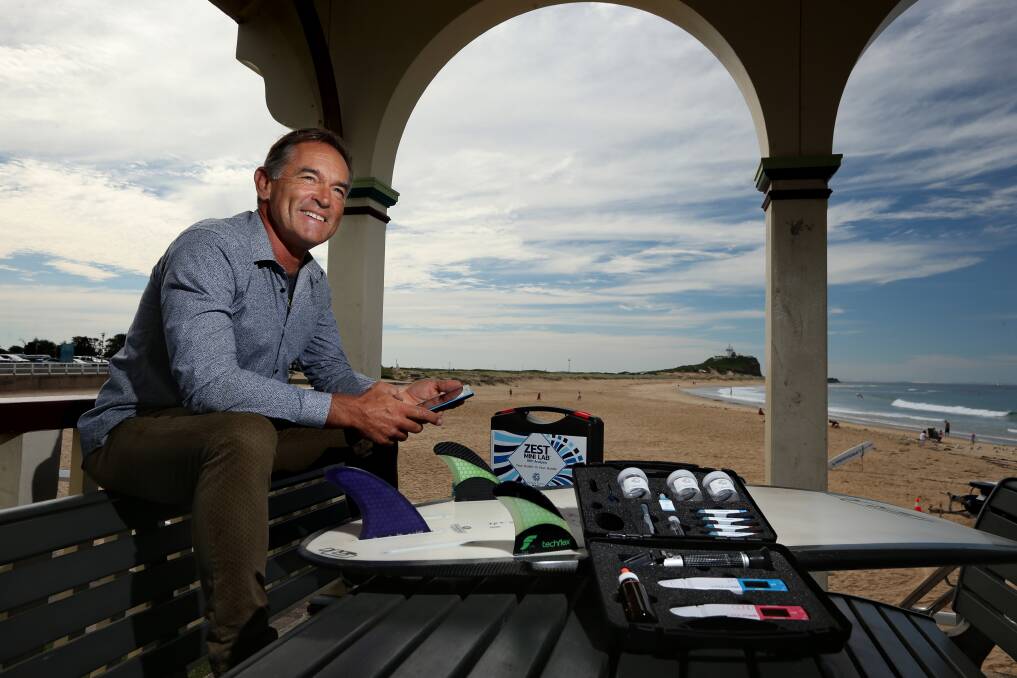
PROFESSIONAL sporting teams looking to gain a competitive edge have turned to a health measurement tool developed in Newcastle.
Subscribe now for unlimited access.
or signup to continue reading
Jenny Boucek, the head coach of the Seattle Storm professional women’s basketball team in the US, has been looking at ways her team might benefit from using the results of a testing kit developed by Phillip Rankin of Lake Macquarie.
The portable mini lab, known as the Zest Test, uses a person’s urine and saliva to determine the sugar, salt, acidity and hydration levels in the body.
It is a simplified version of RBTI testing - which stands for Reams’ Biological Theory of Ionisation - and is a system used by some naturopaths.
But rather than visiting a naturopath to do the test once a month, or more, it allows people to record the measurements themselves, as often as they like, and enter the results into an app that provides instant feedback via a “health score” and advice on what kinds of nutrients or hydration would benefit the body.
For the Seattle Storm, Boucek believes that by figuring out what each individual player needs to eat and drink, and when, in order to maintain optimal salt, sugar, acidity and hydration levels in their bodies, it will translate to improved performance on the court.
I think it could really help a lot of people. If it’s helping athletes at that elite level, then it’s going to help everybody with their health.
- - Jenny Boucek, head coach of the Seattle Storm women's pro basketball team
“It’s a fascinating tool,” Boucek tells Weekender from the US.
“It has a lot of potential. Once we figure out the best way to use this and apply it . . . I think it could really help a lot of people. If it’s helping athletes at that elite level, then it’s going to help everybody with their health.”
Boucek has been testing herself for the best part of a year.
Initially she was intrigued by the concept, which she was introduced to while coaching Newcastle-bred professional basketballer, Suzy Batkovic.
Having seen it in action, Boucek is now working with the team’s doctors and strength conditioning coaches to work out how they can best use the tool’s information.
“I have a sports medicine background, and I’ve been involved in professional sports now for 20 years, both as a player and a coach,” Boucek says.
“I’m fascinated by the body, I’m from a family of doctors – many generations, on both sides of the family tree.
“I am always on the lookout for ways we can apply some of the new science to professional sports to become the best athlete you can be.”
Boucek explains that in the WNBA league, there is a lot of “pairing” - not much separation between the teams.
“Once you reach this level, you’re the best in the world,” she says.
“You can argue that they are the best 144 female athletes of any sport in the world, because it is such a competitive league here.
“They are very successful, very high level athletes, many Olympians. And all of the teams are like that.
“So all of the 1 per cents add up - whether it be mental, the energy on the team, whether it be how well they get along, whether it be how you manage their schedule. There are a lot of factors that determine your success, as the level of talent is so equal.
“Any little separators that we can find are very significant to us.”
Boucek says nutrition is obviously a major contributor to her team’s performance.
Anything that could help them recover more quickly after training or a game, anything that helped them mentally or emotionally, was worth investigating.
“We know that this is valuable, but how do we want to use it in the setting, and how are we going to use the information we gather from the tool?
“That’s what we’re figuring out now.
“Our players are not going to spend a lot of extra time. Time is a currency.
“It has got to be easy, it has got to be practical, it has got to be quick, efficient.”
Boucek says she is a big believer in analytics, hence her interest in the mini lab.
“I like that this is individualised… It’s not just some meal plan that you’re trying to get everybody to do,” she says.
“But the girls can’t get bogged down in a bunch of information and numbers, they just want to know, ‘What do you want me to eat?’ They just want to play well.”
But she says the measurements did not mean much unless you knew how to interpret them, which is why she calls Phillip Rankin, of Lake Macquarie-based Balance Energy Health, her “translator”.
Rankin will travel to the US in August to meet with Boucek, and the team, after countless Facetime discussions.
Rankin says he discovered RBTI testing through a naturopath a decade ago, when a bad business decision and a family tragedy left him “completely wiped out” - financially, physically, and emotionally.
He was told he was pre-diabetic, and tracking towards serious heart-health issues.
“My health was one of the last things I had left, and I wanted to look after it,” he says.

Facinated by his improving “numbers”, he trained in RBTI analysis, and completed further accreditation in the US, although that qualification is not recognised in Australia.
RBTI analysis works off the idea of using the “post-digestive insight” of urine and saliva to get the body’s salt, sugar, acidity and hydration levels within a certain parameter to achieve better health, Rankin says.
He thought if he could simplify the testing, which he has done by collecting four measurements instead of seven, he could “get RBTI to the world.”
Rankin says most people are dehydrated, and deficient in certain types of calciums. But he encouraged them to try to correct the deficiencies through diet first, before turning to supplements.
“All we’re doing is improving their diet, eliminating foods that don’t serve them, and telling them what minerals are missing, and seeing if we get a better result in the next test,” he says.
He and business partner Ken Dark thought it would attract users looking to improve their general health, and it has, but it is with athletes in particular - people already quite fit but looking to fine tune their health - that the tool has found its market.
He has been working with triathletes and marathon runners, and has had interest from other professional sporting teams in Australia that are currently trialling the tool.
“Sports and performance is all about bringing that Formula One Ferrari to its peak performance on race day,” he says.
“It’s all about learning the efficiency of the biochemistry and serving it the right fuel at the right time.”

